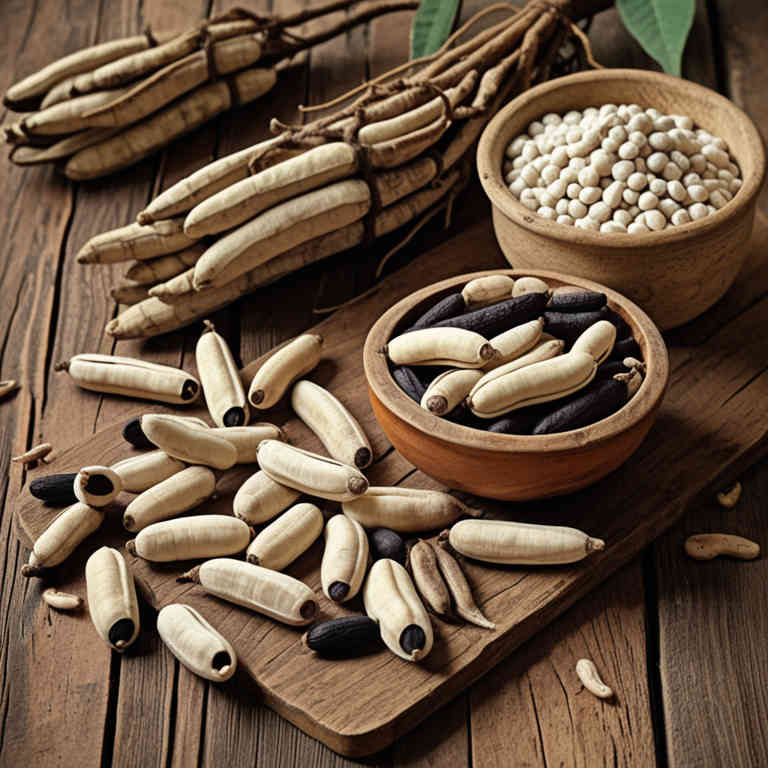Mucuna pruriens mucillage for medicinal use

Mucuna pruriens mucillage is a viscous, gel-like substance derived from the seeds of the Mucuna pruriens plant, commonly known as cow-itch or velvet bean.
This preparation is rich in proteins, amino acids, and bioactive compounds such as L-dopa, which is a precursor to dopamine. In herbalism, it is used to support neurological health, enhance mood, and aid in conditions related to stress and anxiety. It is also valued for its potential to improve physical performance and sexual vitality.
The mucilage is often consumed as a supplement or applied topically for its soothing and nourishing properties.
Uses
Mucuna pruriens mucillage has been used to treat various ailments in traditional medicine systems across Asia and Africa for centuries.
Historically, it was valued for its purported ability to enhance vitality, improve sexual function, and alleviate symptoms of neurological disorders. In Ayurvedic and Chinese medicine, the mucilage was often employed to support digestive health and reduce inflammation. Modern research has begun to explore its potential as a source of antioxidants and neuroprotective compounds, particularly due to its high content of L-dopa, which may aid in managing Parkinson's disease.
Today, it is also used in contemporary herbal formulations for its purported cognitive and mood-enhancing properties.
Benefits
Mucuna pruriens mucillage has health benefits such as enhancing cognitive function, improving mood, and supporting neurological health.
It contains high levels of L-dopa, which is a precursor to dopamine and may help in treating conditions like Parkinson's disease. The mucilage also has anti-inflammatory and antioxidant properties that can support digestive and immune system health. Additionally, it may aid in stress reduction and promote overall vitality.
This herbal preparation is traditionally used in Ayurvedic medicine for its wide range of therapeutic effects.
Constituents
Mucuna pruriens mucillage active constituents include mucilage, alkaloids, amino acids, and phytoestrogens.
The mucilage, a gel-like substance, is primarily responsible for its soothing and demulcent properties, making it beneficial for digestive and respiratory health. Alkaloids such as L-dopa contribute to its potential neuroprotective effects. Amino acids in the preparation support overall metabolic function and muscle health.
Phytoestrogens may help regulate hormonal balance and support reproductive health.
Preparation
To make Mucuna pruriens mucillage, start by collecting fresh or dried seeds of the Mucuna pruriens plant.
Wash the seeds thoroughly and soak them in water for 24 hours to allow the mucilage to dissolve. After soaking, strain the mixture through a fine mesh or cheesecloth to separate the mucilage from the solid residue. The resulting liquid is the mucilage, which can be used as is or further processed by evaporating excess water to concentrate it.
This preparation is valued for its potential health benefits and is commonly used in traditional medicine.
Side Effects
Mucuna pruriens mucillage may lead to gastrointestinal discomfort, including nausea, vomiting, and diarrhea, due to its high mucilage content.
It can also cause allergic reactions in some individuals, particularly those sensitive to legumes. Prolonged use may lead to dependency or imbalances in gut flora. In high doses, it may contribute to hypoglycemia, especially in individuals with diabetes.
It is important to consult a healthcare professional before using this preparation, as it may interact with medications or exacerbate existing health conditions.